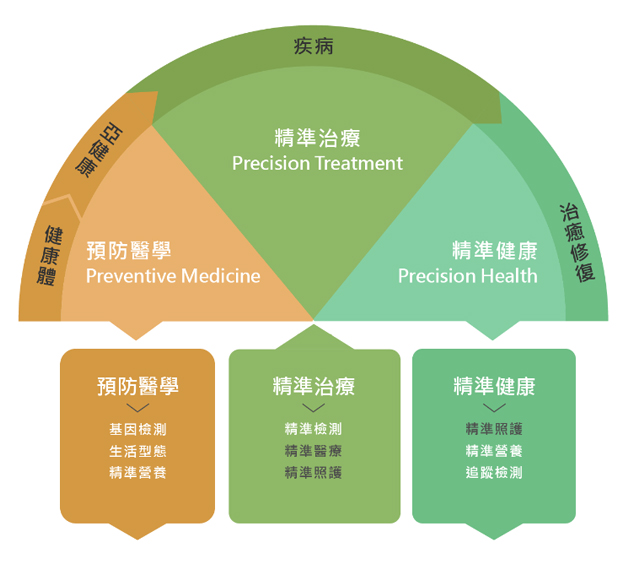Players who want to enter the health care product market should read following
The latest health care market trends are revealed!
Global demographic changes are significantly impacting healthcare operations, and the health food market is no exception. These trends are reflected in the diverse needs of consumers across different age groups and lifestyles, driving the diversification of services and functional segmentation of products in the health food market. The aging population, increasing health awareness, and accelerating urbanization are shaping modern health food market demand.

First, the global elderly population is steadily increasing, providing significant opportunities for the health food market. With advances in medical technology and living standards, the elderly population is growing, and with age come numerous health issues such as osteoporosis, cardiovascular diseases, and weakened immunity. As a result, there is a growing demand for health foods targeted at the elderly, particularly products that slow aging, strengthen bones and joints, and enhance immune function. Products containing calcium, vitamin D, and collagen are popular among this demographic due to their ability to maintain bone health and joint flexibility.
In addition, memory support and brain health are key needs for the elderly. As people age, many experience memory decline or cognitive challenges, driving increased demand for brain-health-supporting products. Health foods containing Omega-3 fatty acids, ergothioneine, lion’s mane mushroom extract, and hericenones are popular choices among older consumers due to their neuroprotective effects, ability to promote cerebral circulation, and enhance cognitive function.

However, the demand for health foods is not limited to the elderly. The fast pace of daily life and the emphasis on high performance in both education and work have significantly changed the lifestyles of younger and middle-aged populations. This has led to a growing demand for health foods that address chronic fatigue, immune deficiencies, cognitive performance, and gastrointestinal health. Young professionals and students often face these challenges due to long hours in high-pressure environments, lack of exercise, and unhealthy diets, which increase the need for supplements that support brain power, physical energy, emotional stability, and digestive health.
Moreover, the younger beauty-conscious generation's demand for health management differs from that of the elderly. The younger generation places greater emphasis on appearance, particularly in anti-aging, skincare, and beauty maintenance. Beauty supplements such as collagen boosters, hyaluronic acid products, and antioxidant-rich skincare solutions are becoming mainstream. Younger consumers are also more inclined to select brands that emphasize natural, organic ingredients, effective formulations, and sustainable practices.

As consumers' health needs become more and more diverse, the market demand for customized and diversified health products continues to grow. The definition and needs of consumers in different regions and cultural backgrounds vary widely, which further promotes the localization and differentiation of the health food market. For example, Asian consumers are generally more concerned about gastrointestinal health and immunity, while consumers in Europe and the United States are more focused on cardiovascular health and weight management. When developing products, companies must consider these regional differences in demand and provide customized products for different markets to meet the needs of various consumer groups.
In conclusion, population changes are driving the continuous growth of demand in the health food market. As the elderly population increases and urban life becomes more stressful, the market for health foods catering to different age groups and health needs will expand. Companies must closely monitor these trends and innovate to meet the evolving market demand.
Finally, let's explore what influences consumers' purchasing decisions on health supplements.
Against the backdrop of global economic shocks and soaring prices, consumers' consumption patterns are undergoing profound changes. With the rise in prices and the insignificant growth of the average income of Chinese people, consumers' purchasing behavior is becoming more and more inclined to a precise consumption model, especially in the field of health food, consumers are more inclined to choose products with good effects and suitable for their own needs, so as to maximize the value of every penny of expenditure.
In the current situation of continuous price increases, consumers are significantly more sensitive to prices. Compared with the indiscriminate "complementary consumption" of the past, today's consumers are more rational and have begun to deeply consider the ingredients, efficacy and CP value of products. Therefore, for the health food industry, how to meet the health needs of consumers while providing more valuable products has become the key to whether enterprises can win the market competition.
As mentioned in the previous paragraph, consumers' choice of health food is more inclined to "precision health". The concept of precision health care refers to the selection of the most appropriate products according to the specific health status and actual needs of the individual, rather than blindly supplementing all nutrients. For example, for office workers who often feel tired, they may specifically choose anti-fatigue products that contain vitamin B complex or NMN, etc.; For consumers who have been stressed for a long time, they will prefer products with soothing effects, such as supplements containing tryptophan or passionflower extract.
 圖片來源:Uni-Cure
圖片來源:Uni-Cure
This trend of precision consumption has prompted health food companies to pay more attention to the specificity of ingredients in product development. Rather than launching large, comprehensive and multi-functional products, companies are more inclined to segment their products for different health issues. This not only helps consumers to address health issues more effectively, but also makes the company's products more competitive in the market. Exclusive products are able to meet the specific needs of consumers, which increases their purchase intent and leads to deeper brand loyalty for businesses.
Consumers are paying more and more attention to the quality of their products while being budget-conscious. With the rise of health awareness, consumers no longer only pay attention to price, but want to choose products with real results and professional, empirical and scientific endorsement. Therefore, health foods that are supported by clinical research evidence are relatively able to win the trust of consumers. In this context, health food companies need to strengthen cooperation with scientific research institutions to ensure the safety and effectiveness of product formulations, and show consumers the actual efficacy of products through transparent data.
In addition, with the advent of the digital age, consumers are increasingly relying on e-commerce platforms to purchase health foods. Not only do they compare prices and make purchases through e-commerce platforms, but they also make purchase decisions based on consumer reviews and product ratings. This requires health food companies to provide more transparent and rich product-related information in online platforms, and pay attention to the management of brand reputation. Consumers want to know the details of a product's ingredients, efficacy, and production process at all times, and this transparency helps build trust in the brand, which in turn drives purchases.
At the same time, the decline in purchasing power brought about by rising prices has made consumers more willing to choose guaranteed products when purchasing health foods. This has also prompted health food companies to pay more attention to communication with consumers, and enhance consumers' trust in the brand through marketing promotion, product education and other means. For example, companies can use social media such as Instagram, YouTube, Facebook, etc., to invite health experts and medical professionals to make product recommendations, or launch popular science articles for specific health needs, so that consumers can better understand how to accurately choose the right health food for them.

Generally speaking, in the era of high prices, consumers' demand for health food is no longer only the pursuit of nutritional supplements, but the pursuit of precision consumption patterns that maximize utility. This consumption model emphasizes quality, effectiveness and exclusivity, and health food companies must make corresponding adjustments in product development, marketing strategies and customer service to remain competitive in such a market environment.
